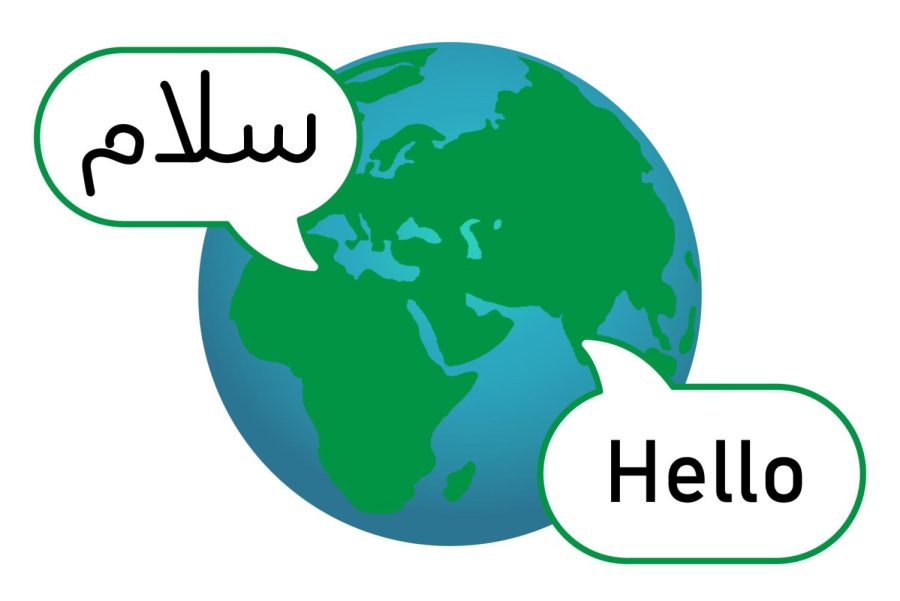Platteville Provides ESL Support to Community
Platteville and surrounding communities have banded together to improve communication between native English speakers and non-English speakers.
Dr. Carolyn Keller, UW-Platteville Associate Provost in Academic Affairs and a tenured faculty member of the Social Sciences Department, explained that the University’s role in helping people acquire English is to provide basic English language instruction.
The Southwestern Wisconsin Community Action Program, which serves Iowa, Lafayette, Grant, Green and Richland Counties, works as a nonprofit organization to connect two non-English speaking community members to sufficient support. UW-Platteville partnered with SWCAP to resettle and sponsor two Afghan families into Platteville.
“I volunteered time in that effort,” Dr. Keller said. She explained that the decision for where the families moved was based on whether the location could provide the resources they needed. “Many volunteers worked together to provide initial support for food, healthcare, housing and job searching.”
Southwest Tech also offers English language instruction. Dr. Keller added that coordinating support allows individuals to access the services they need, which increases the possibility of whether acclimated families become active community members.
Dr. Keller commented on the greatest benefits of having ESL and other resources available in Platteville and the surrounding communities: “Being a welcoming community that supports individuals to pursue their goals benefits everyone. As an aging region, we need to attract people to live, work and thrive in Southwest Wisconsin.”
Staff members of the UW-Platteville Office of Multicultural Student Affairs have served on committees to discuss the resources available and that OMSA could give regarding past refugee relocation. OMSA can give input on whether the community can support incoming refugees though OMSA does not make the ultimate decision. Representing OMSA, Executive Director of Diversity, Equity and Inclusion Kari Hill also volunteered to help the two Afghan families resettle.
Additionally, OMSA works with the Platteville Public Library to request a Hispanic Outreach Specialist as needed. “The Hispanic Outreach Specialist works primarily with Hispanic families in the surrounding communities in assisting with connecting them with resources and assisting as able,” Hill siad “Examples would be assisting with translating at parent-teacher conferences, hosting community events and bringing Hispanic families to our campuses.”
Dr. Yuanyuan Hu, an English professor specializing in Teaching English to Speakers of Other Languages in the Department of Humanities at UW-Platteville, has been in charge of the undergraduate TESOL program since Fall 2007. In 2001, Dr. Hu came from China to the U.S. as an international student to pursue a doctoral degree at Purdue University.
Regarding TESOL student opportunities, the TESOL curriculum incorporates experiential learning like interview projects, data collection, case studies and service learning that increase students’ abilities to engage with people from different cultures and languages. Dr. Hu explained that there are three options to pursue the TESOL program: a minor, a licensure minor and a certificate.
The TESOL program “provides students with professional knowledge and skills necessary to teach English to speakers of other languages in the U.S. or abroad.” Dr. Hu continued, “TESOL graduates have been teaching or supporting English learners in K-12 schools, community or company ESL programs” in addition to traveling to other countries such as Japan to teach English as a second language.
The TESOL program is in place as a way for the instructor to oversee how students help other learners. It successfully prepares students for the opportunity to have positive impacts within their community.
UW-Platteville news states that previous TESOL graduate Allisa Cardella became the training and development generalist at Lactalis American Group, Inc, where she started an ESL course in May 2020. The ESL course was implemented to “bridge the communication gaps between English and non-English speakers.”
This past summer, a current TESOL student instructed an ESL class where one of the Afghan families attended along with Spanish speakers who work at a local facility. That ESL class has continued into the current semester with solely the Afghan family.
Three TESOL students are currently instructing this ESL class, which the parents of an Afghan family attend. TESOL student Lisa Chu said, “I just added my TESOL minor this semester, and honestly, it’s hard work but it’s fulfilling.”
Chu explained that her first experience with instructing English was Spring 2022 when she co-instructed Afghan refugees who were in the middle of earning their undergraduate degrees till they had to move to the U.S. due tothe ending of US involvement in Afghanistan. There were five students who attended the class, and they are now currently acclimated and on track to achieving their degrees in their chosen fields.
Chu has also continued instruction for two of those students, daughters of the Afghan parents. Chu added that the parents need English for daily communicaction whereas their daughters are more focused on academic English for their schoolwork.
“I hope that the TESOL program will continue enhancing students’ understanding of linguistic and cultural diversity in our communities and the world, improving their intercultural communication competence and involving more students in bridging linguistic and cultural differences,” said Dr. Hu.





